weBoost ‘Good Call Study’ Finds Phone Calls Are More Relevant Than Ever, and May Even Have Lasting Health and Relationship Benefits
Posted on 4/22/2020 by Nicholas Jones
Since the introduction of the telephone in 1876, the phone has played a vital role in connecting humanity. Today, the phone’s increased importance as a way to communicate with friends, family, and coworkers on a daily basis cannot be overstated. But with the rise of social media, texting, apps, gaming, and other distractions, is a phone call still as relevant as it once was?
In this unprecedented time, where millions of people are working from home, attending school virtually, and essentially living in isolation from everyone except their closest family members, it’s more important than ever for us to interact with others in a more personal, authentic way. With so many Americans unable to communicate and engage in person, there is a surge in people picking up the phone to call someone to foster the deeper, more meaningful connections we miss from the days when a phone was simply, a phone.
In response to this phenomenon, we conducted a survey of 1,000 U.S. consumers in an effort to better understand how and why people are using the phone. In the process, we uncovered some surprising benefits that demonstrate why the phone call is more important than ever before. Our research was announced today, alongside our latest product for boosting cell service in the home – weBoost Installed Home Complete. Here are some of the top takeaways from our first-ever Good Call Study:
Phone calls still matter, and people will take them from anywhere.
Among the consumers surveyed, a majority of Americans (55%) communicate using phone calls on a daily basis and 85% on a weekly basis. In fact, phone calls are so engrained in our nation’s day-to-day activities, that people will go the extra mile to make phone calls at any place and at any time.
The majority of Americans (68%) have spoken on the phone while on the toilet, 37% have fallen asleep while on the phone, and 29% have even answered the phone during a romantic situation.
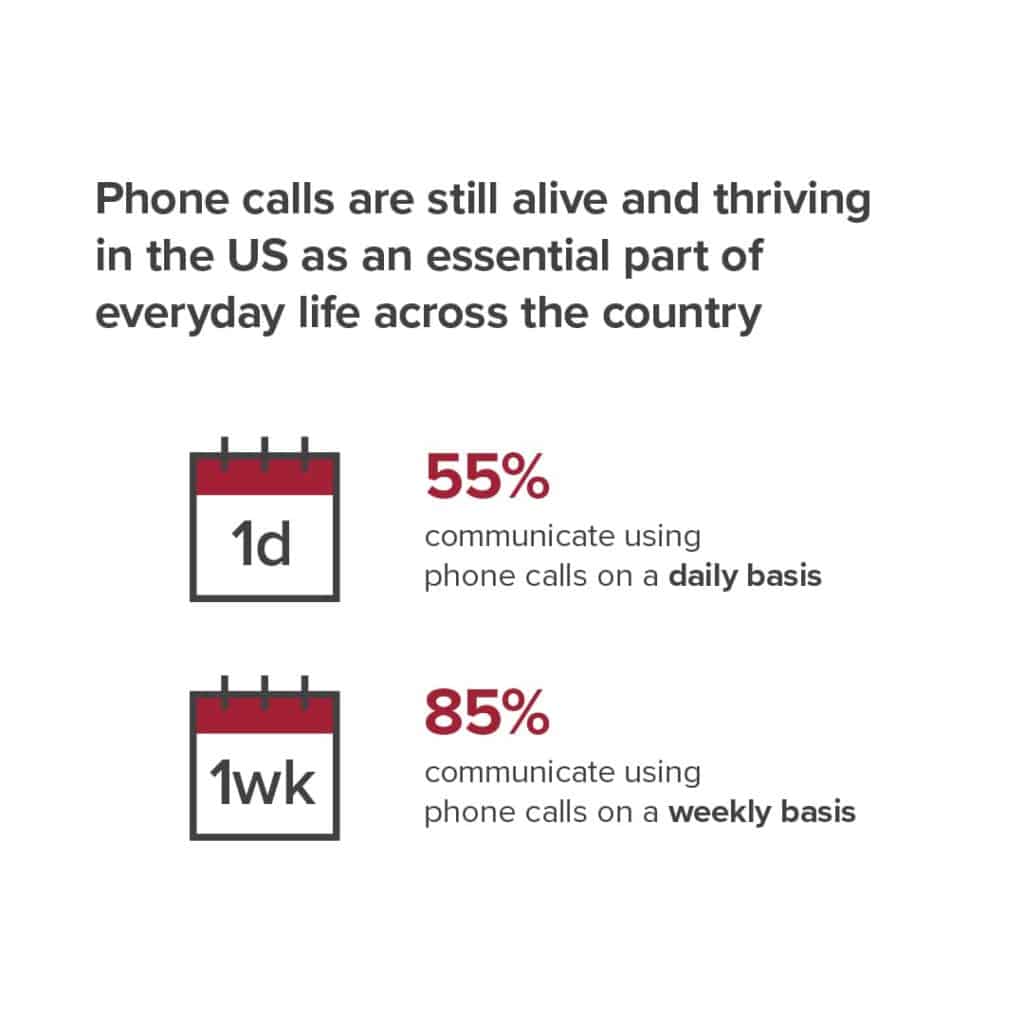
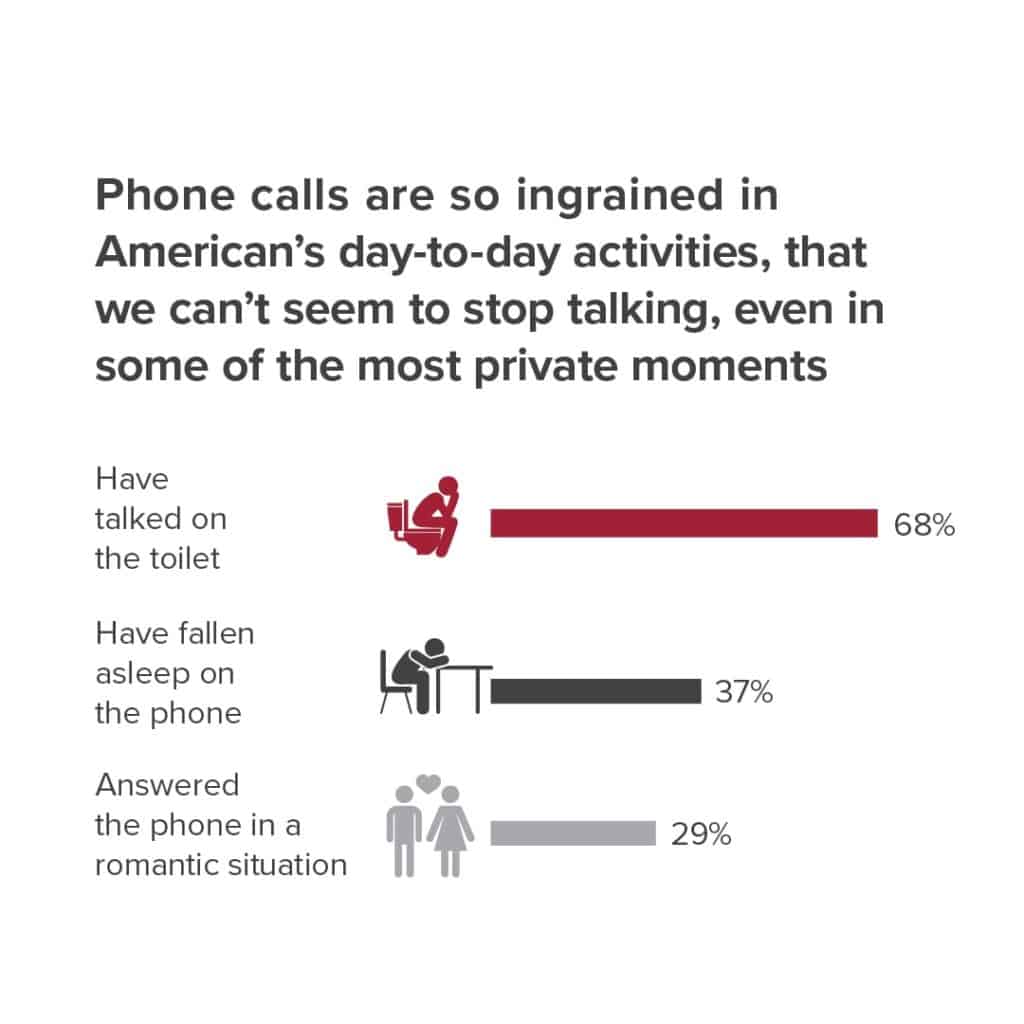 Ironically, as many Americans express an affinity for talking on the phone, they also continue to struggle with poor connectivity and dropped calls. Nearly half of Americans (49%) say they have walked to an inconvenient or otherwise impractical place in their house or yard just to get better cell service. If that isn’t frustrating enough, over half of Americans (51%) say they’ve had a call dropped at a critical moment.
Ironically, as many Americans express an affinity for talking on the phone, they also continue to struggle with poor connectivity and dropped calls. Nearly half of Americans (49%) say they have walked to an inconvenient or otherwise impractical place in their house or yard just to get better cell service. If that isn’t frustrating enough, over half of Americans (51%) say they’ve had a call dropped at a critical moment.
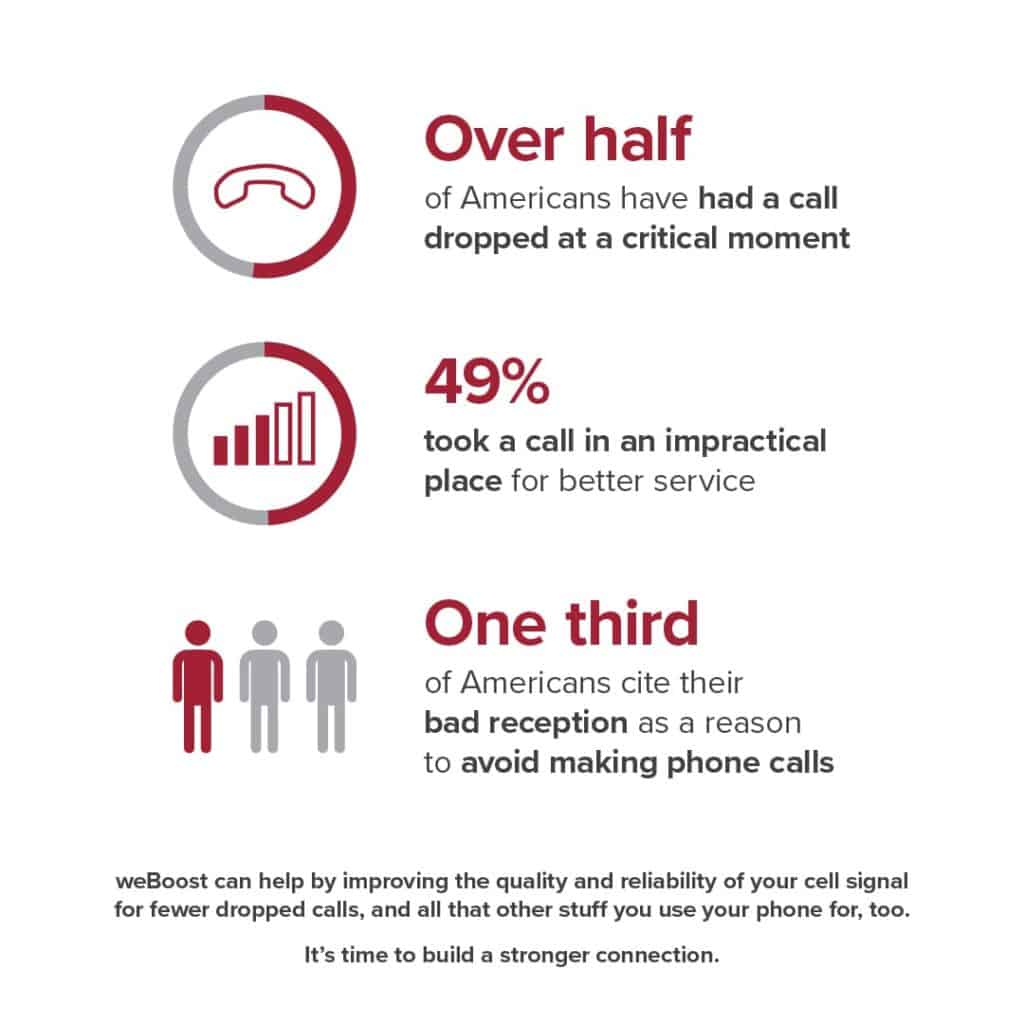
Talking on the phone makes us happier and reduces anxiety and stress.
Six in 10 Americans agree that calls can both reduce anxiety (63%) and reduce stress (63%). More so, the majority of Americans (63%) say that they feel happy when they see that someone is calling them and 62% feel happier after getting off a personal phone call.
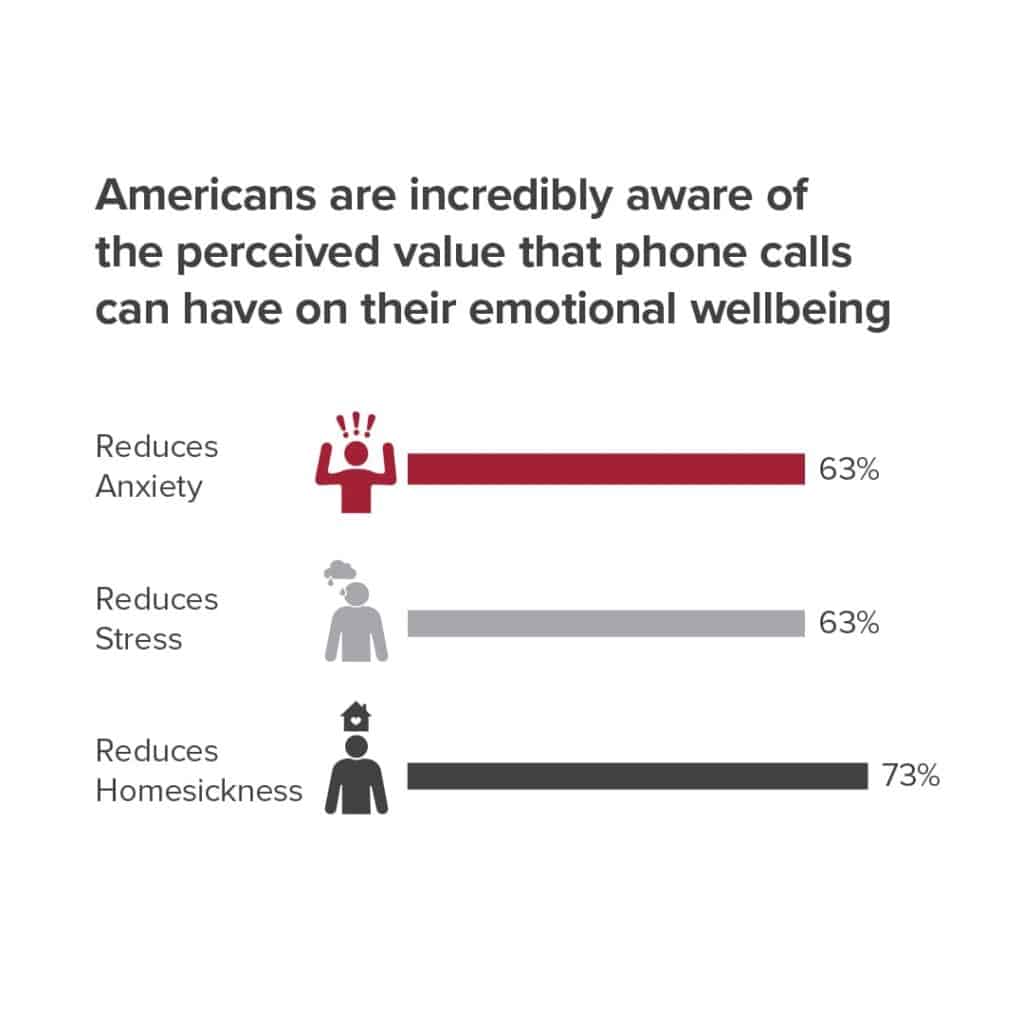
However, not every generation shares this sentiment. In fact, an overwhelming majority (87%) of Gen Z actually prefers texting for personal communication.
Gen Z also feels much more awkward and anxious when picking up the phone than any other generation. One might conclude that Gen Z’s aversion to phone calls could be due to a startling revelation: over half of them admit they’ve never been taught proper phone etiquette.
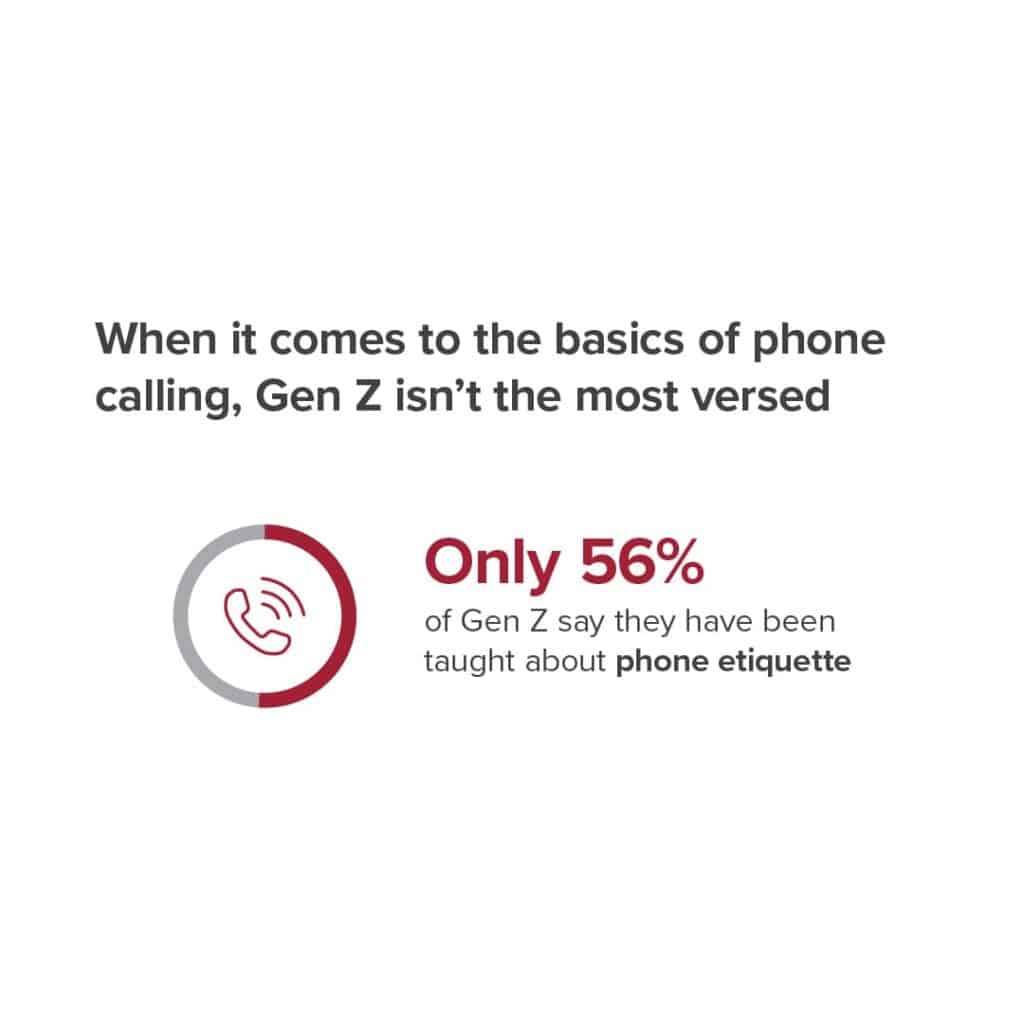
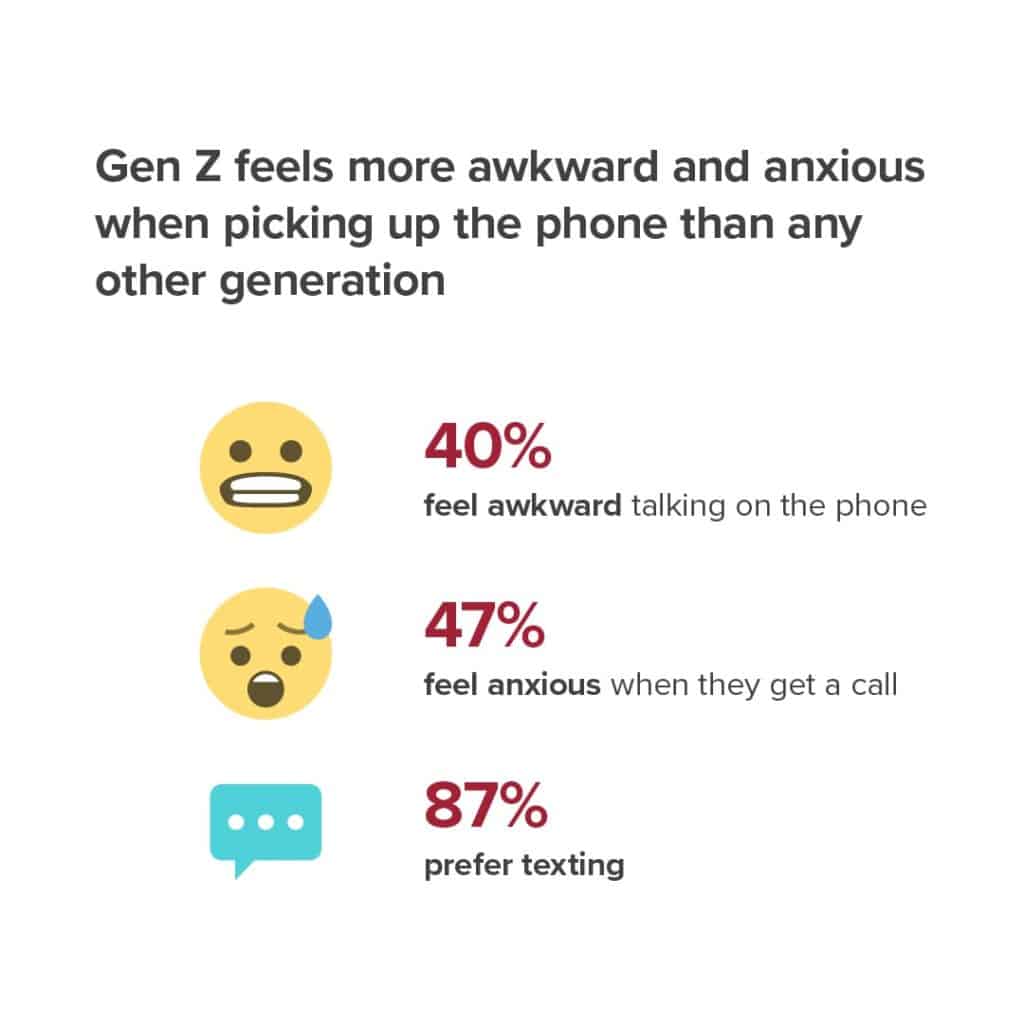
Not surprisingly, 47% of Gen Z also feel anxious when they see someone is calling them and 40% of Gen Z say they feel awkward when talking on the phone.
Phone calls also strengthen emotional connections with others.
Almost 9 in 10 Americans (85%) believe calling is important because it strengthens personal connections. More than 8 in 10 people (83%) say calling is important because it enhances emotional bonds and builds trust.
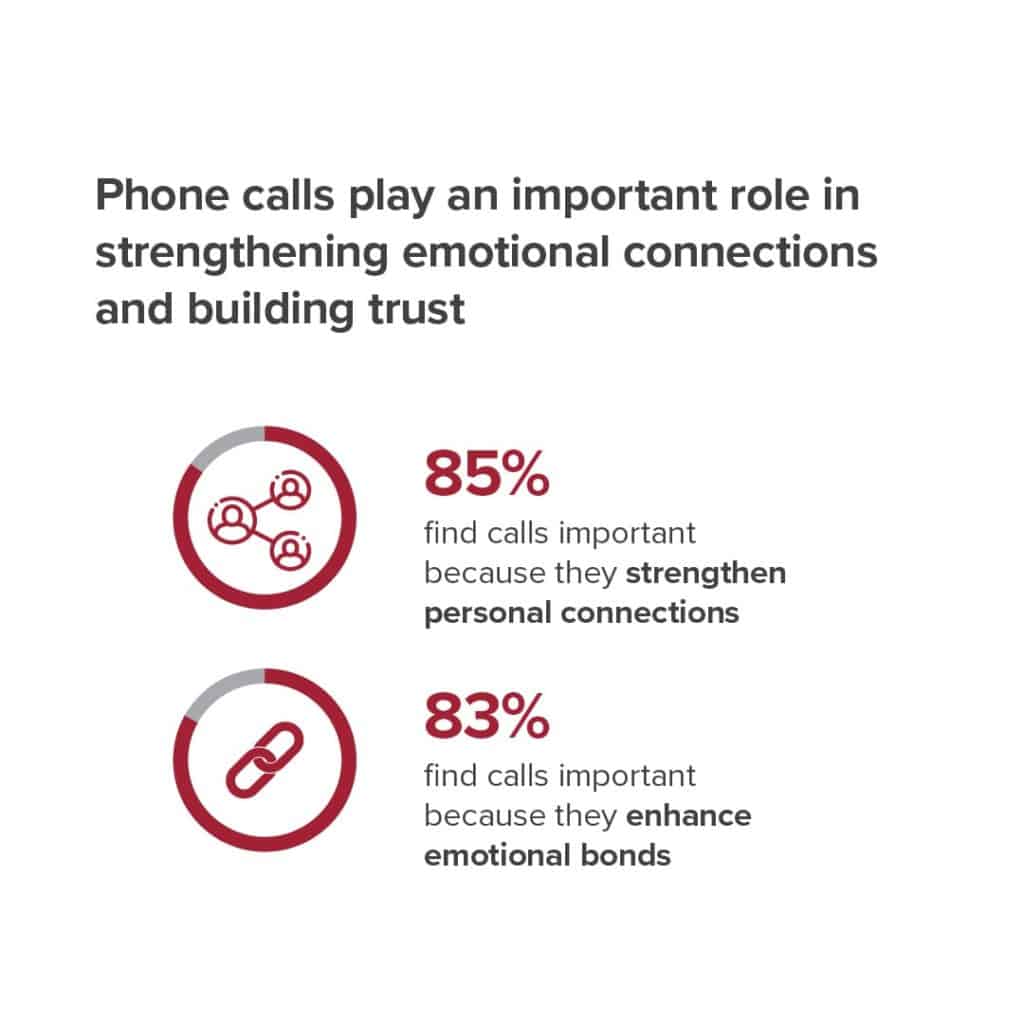
This is especially true for those looking for love. 7 out of 10 Americans agree that talking on the phone strengthens romantic connections in the early stages of dating. What’s more, 67% of single Americans say that if they are interested in someone, they would prefer to talk on the phone to get to know them better versus chatting in a dating app.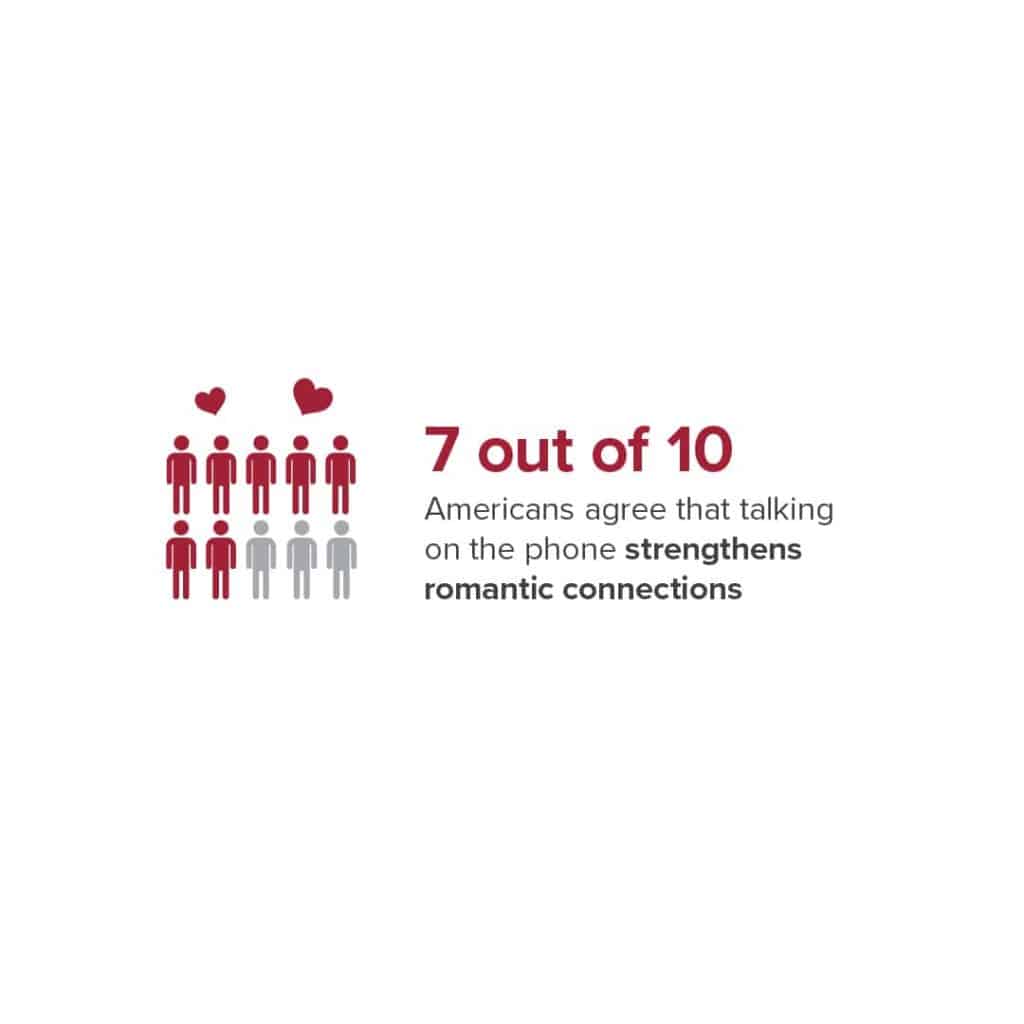
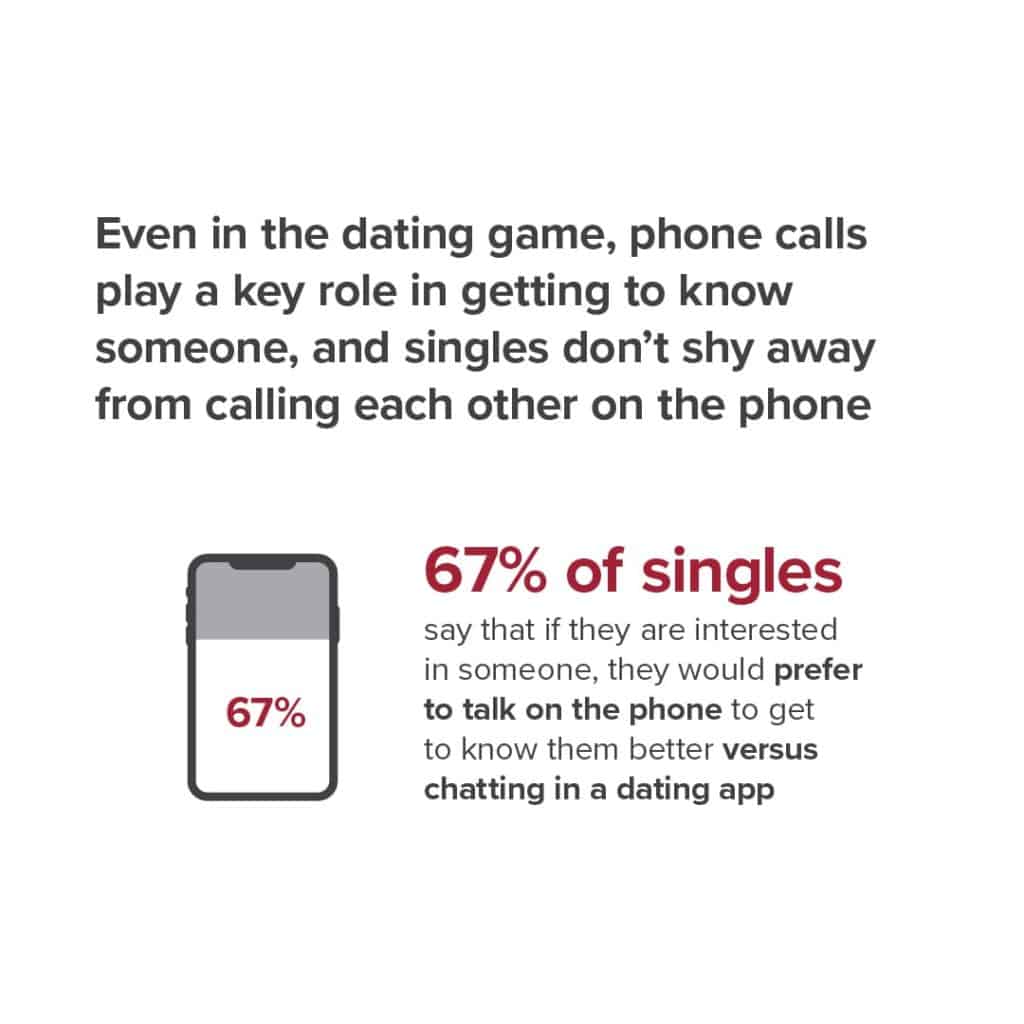
Talking on the phone with coworkers boosts your likeability and credibility in the workplace.
Given the country’s new normal of working from home, the majority of employed Americans (67%) agree that communicating via phone calls positively affects the credibility and likeability of the person communicating with them versus email. Additionally, 75% of employed Americans agree that communicating via phone calls makes positive news or feedback more sincere versus email.
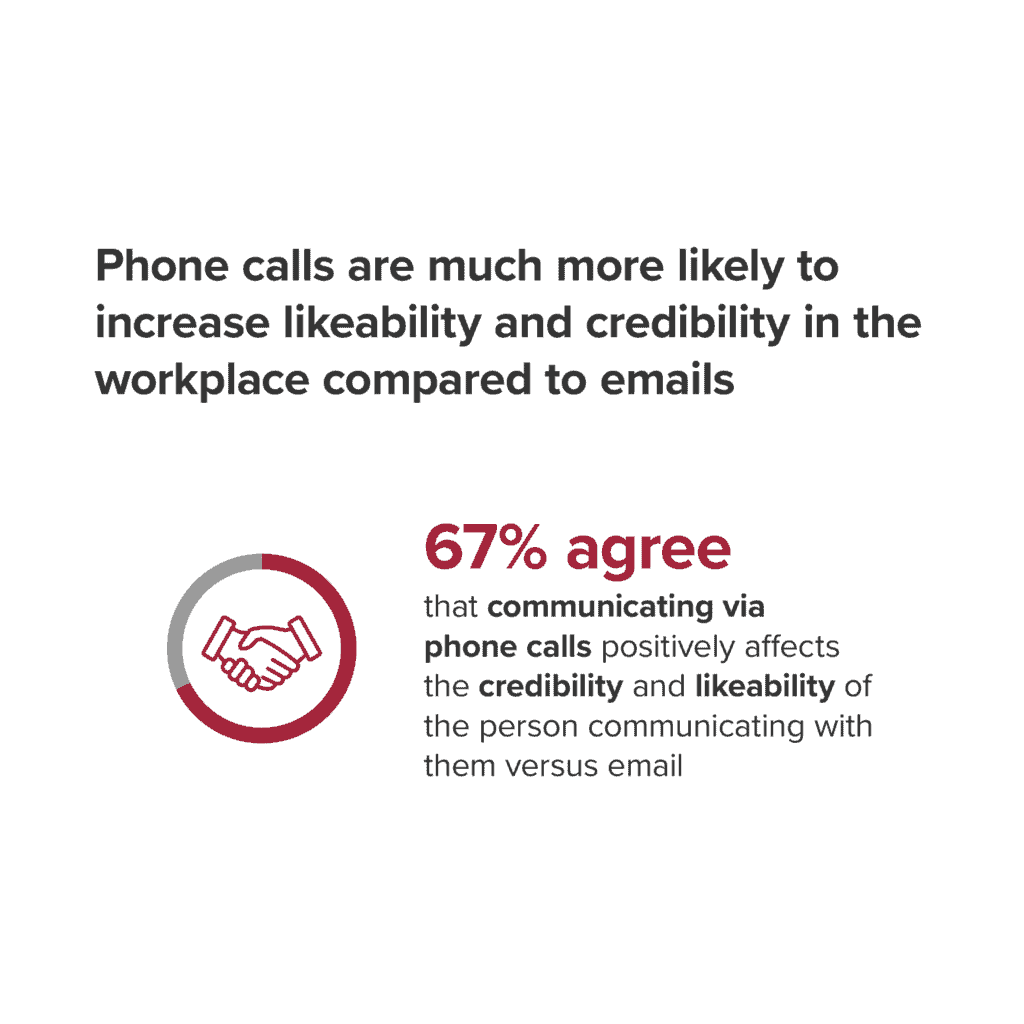
Whether it’s improved health, happiness, relationships, or work productivity, we’re excited to see the renewed interest and appreciation for the power of a simple phone call. At weBoost, we’re proud to provide customers with the high-quality, reliable cell signal they need to ensure fewer dropped calls and allow for more time to stay connected with their family, friends, loved ones, and coworkers.
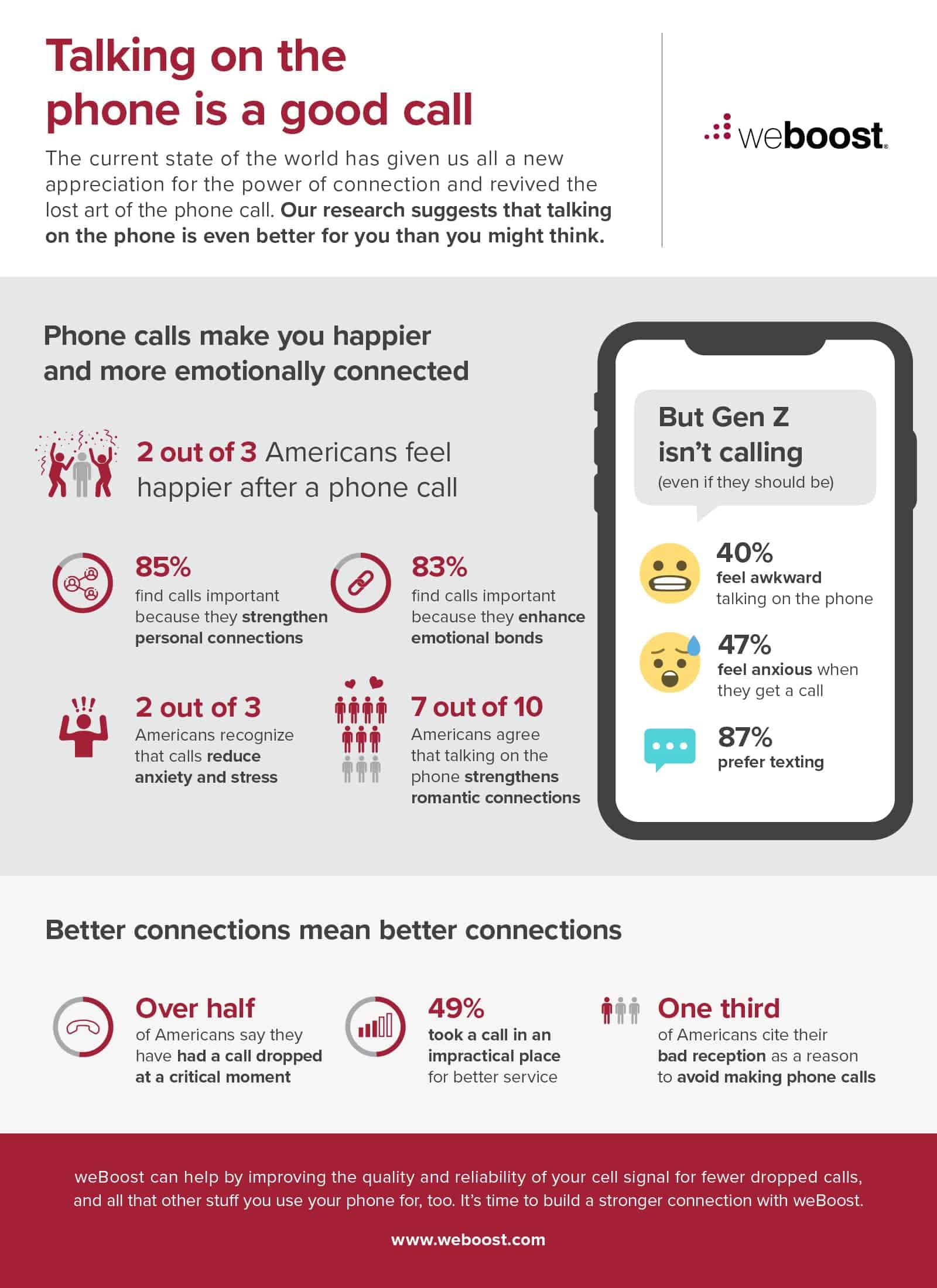
Read the full findings from our study here.
Learn more about weBoost Installed Home Complete or shop our full-line of weBoost products.



